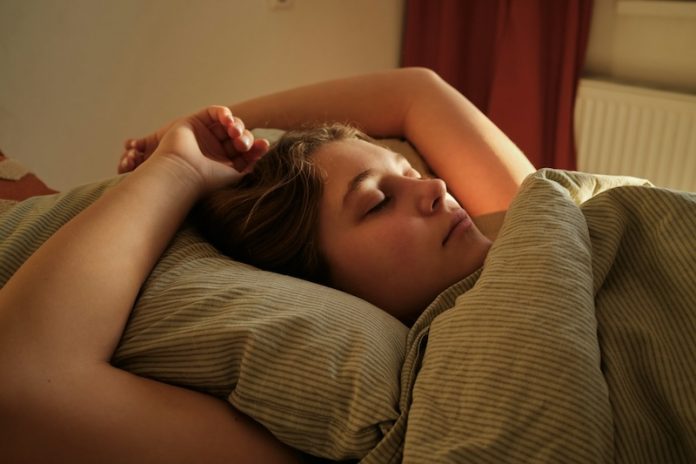
A groundbreaking new study by sleep researchers at Flinders University has revealed that rising global temperatures may significantly worsen sleep apnea, a common and serious sleep disorder that already affects nearly a billion people worldwide.
Published in Nature Communications, the study is the first to directly link climate change to increased severity and prevalence of obstructive sleep apnea (OSA)—a condition in which breathing repeatedly stops and starts during sleep.
The study found that warmer nighttime temperatures are associated with a 45% higher chance of experiencing sleep apnea on a given night. And under the most likely climate change scenarios, the overall burden of sleep apnea—both in terms of public health and economic costs—is expected to double by the end of this century in many parts of the world.
Dr. Bastien Lechat, the study’s lead author and sleep expert from FHMRI Sleep Health, said he was surprised by just how strong the link was between heat and worsening OSA.
“This is the first study of its kind to show that climate-related changes in ambient temperature can directly impact breathing during sleep,” he said. “These effects vary by region, and people in Europe may be more vulnerable than those in the U.S. or Australia—possibly due to lower rates of air conditioning.”
Sleep apnea, when untreated, is known to raise the risk of several serious conditions such as dementia, Parkinson’s disease, heart problems, high blood pressure, anxiety, and depression. It also contributes to reduced quality of life, greater risk of car accidents, and even higher rates of death. In Australia alone, sleep disorders like OSA cost the economy about $66 billion a year.
For this study, researchers analyzed data from more than 116,000 people worldwide, collected through an FDA-approved under-mattress sleep sensor. Each person contributed around 500 nights of sleep data, which was then matched with local 24-hour temperature records from global climate models.
The result was an enormous dataset that allowed scientists to examine how sleep apnea severity shifted with temperature changes over time and across different parts of the world.
The researchers then used World Health Organization tools to estimate the impact of this worsening condition on global health and the economy. They measured the number of healthy years of life lost to illness or premature death—known as disability-adjusted life years (DALYs)—and the economic toll in terms of productivity loss.
They found that in 2023 alone, rising temperatures contributed to the loss of approximately 800,000 healthy life yearsacross 29 countries, a burden similar to that caused by conditions like bipolar disorder, Parkinson’s disease, or chronic kidney disease.
Financially, the cost was estimated at $98 billion USD, with $68 billion due to reduced well-being and $30 billion due to lost workplace productivity.
And this is only the beginning. Without action to slow global warming, the researchers say that the global burden of OSA could double by 2100. Senior researcher Professor Danny Eckert emphasized that their sample mostly came from wealthier countries and individuals with access to comfortable sleeping environments and air conditioning—meaning the actual health and economic toll is likely even greater in less-resourced parts of the world.
The study adds to the growing list of ways climate change is directly affecting human health, especially during sleep. It also highlights a new urgency to improve diagnosis and treatment of sleep apnea as global temperatures rise. “The climate crisis is no longer just about the environment—it’s about how we sleep, how we live, and how we work,” said Professor Eckert.
The researchers now plan to develop new intervention strategies to reduce the impact of hot nights on sleep apnea and to better understand how heat influences the body’s sleep and breathing systems. With climate change accelerating, they say the time to act is now—both to treat OSA and to protect sleep health worldwide.
If you care about sleep, please read studies about herb that could help you sleep well at night, and these drugs could lower severity of sleep apnea by one third.
For more health information, please see recent studies that coffee boosts your physical activity, cuts sleep, affects heartbeat, and results showing how to deal with “COVID-somnia” and sleep well at night.
The research findings can be found in Nature Communications.
Copyright © 2025 Knowridge Science Report. All rights reserved.



